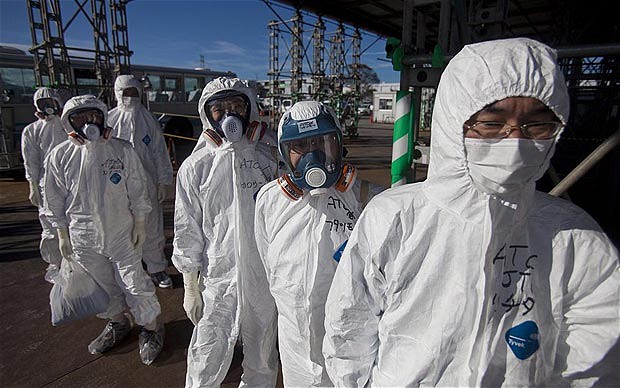By Debbie Warrener
I am blessed with strong connections with the wonderful country of Japan. I previously lived there for four years and speak reasonably fluent Japanese. It was therefore an enormous and humbling privilege to be asked to participate in a ‘Learning Journey’ to Fukushima this past November. A small group of us travelled together to hear stories and to bear witness to the multi-faceted tsunami and radiation disaster of March 2011 and its aftermath in order to learn lessons for us all on community leadership and resilience. Here are some lessons on resilience I noted from the stories I heard – relevant for us all in light of the complex global challenges we face today:

- In the face of the surreal, still-unfolding and challenging disaster of Fukushima people have had to find their own answers. What is clear is there are no easy answers. Overnight people had to gen up on radioactivity. Different people are finding different answers – for example whether they stay or leave; whether they eat the food or not. The people I met who are thriving in the face of this awful disaster have found the strength within to find their own answers in a great sea of unknowing. Resilience is about not expecting easy answers and not expecting others to ‘solve’ the complex issues we face. Resilience is about being prepared to take risks and make difficult decisions while respecting others in the decisions they are making – even if they differ from you.
- People gained great strength in the aftermath of the destruction of the tsunami by observing the gradual recovery of nature. This kept them connected with the interwoven web of the natural world of which we are always part. In the face of their overwhelming grief and despair they were comforted by the gradual return of the birds and flowers and after the third year could see them beginning to return to ‘normal’. Although the radiation is invisible and its long-term impact on nature is unknown nature everywhere is a great resource and support for us to find resilience in the face of crisis and deep despair.
- In Fukushima where so much is uncertain and many questions have no easy answers what is clear is that a key part of resilience is where do we answer our questions from? Are our answers being made based on fear or something else? Resilience is about focusing on the opportunities, hope and what is important regardless of the circumstances. I saw this, for example, in the stories of people who are consciously choosing to stay even though there is a risk that their lives may be shorter as a result. They are choosing the land and connections they love. They are not choosing from fear. Others have moved into the affected areas because they have found more meaning and purpose in this situation and the challenges therein than a humdrum ‘mainstream’ life. Resilience is about seeing the adventure in the challenge. Connecting with personal meaning and purpose in even the toughest circumstances.
- And sharing the pain is important too. People were and are so supported by the volunteers who have come to simply listen and bear witness – such as our group was doing. While it is not always easy to find spaces to share what is difficult connections are deepened by honouring the despair – and through honouring challenges people can find the strength to choose courage, resilience and finding their own answers in a great sea of not knowing.
To read more of the stories from my trip to Fukushima see this guest post on the Transition Network blog and this earlier one.
